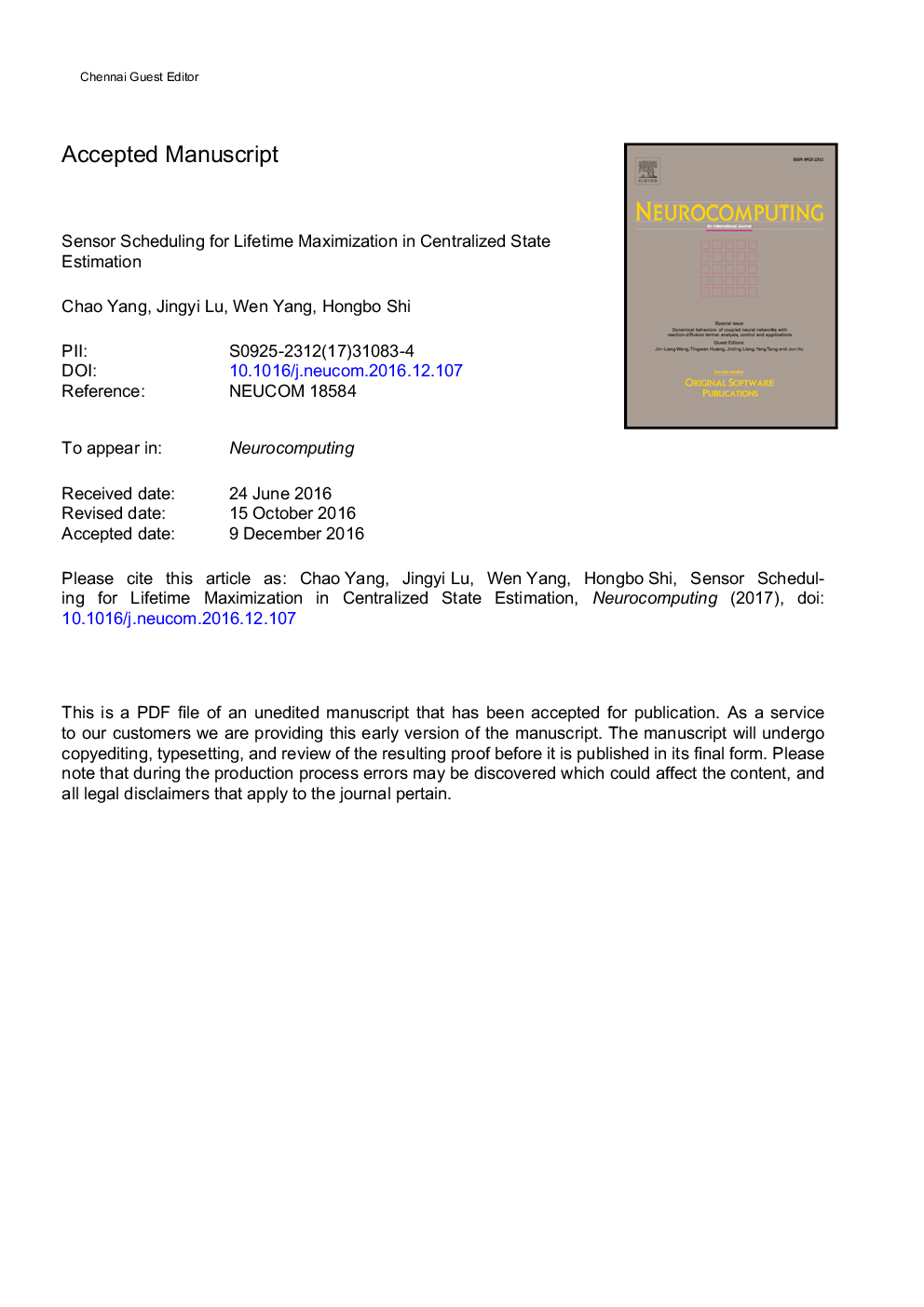| Article ID | Journal | Published Year | Pages | File Type |
|---|---|---|---|---|
| 4946836 | Neurocomputing | 2017 | 17 Pages |
Abstract
This paper studies how to maximize the lifetime of a centralized sensor system and meanwhile maintain a certain level of the estimation performance. The model is as follows. A group of sensors measure the states of a dynamic process and transmit the measurements to a remote estimator, which computes the estimates of the states. Constrained by its energy budget, each sensor has limited transmission times and may not transmit data at each time slot. Meanwhile, the time duration to maintain a certain level of the estimation performance of the estimator depends on the scheduling of sensor transmission. The notion of lifetime is defined as the largest time duration within which the system maintains a required estimation performance under a given schedule. This paper aims at studying the optimal scheduling which maximizes the lifetime of the system when a level of estimation performance is required. Both the scenarios of deterministic and stochastic scheduling are considered. In deterministic scheduling, three algorithms are proposed, where the schedules are given by solving convex problems and then discretizing the scheduling variables. In stochastic scheduling, two relaxed problems are considered, where the bounds of the original objective are used. The maximum of lifetime is also studied. Examples are given in the end.
Related Topics
Physical Sciences and Engineering
Computer Science
Artificial Intelligence
Authors
Chao Yang, Jingyi Lu, Wen Yang, Hongbo Shi,
